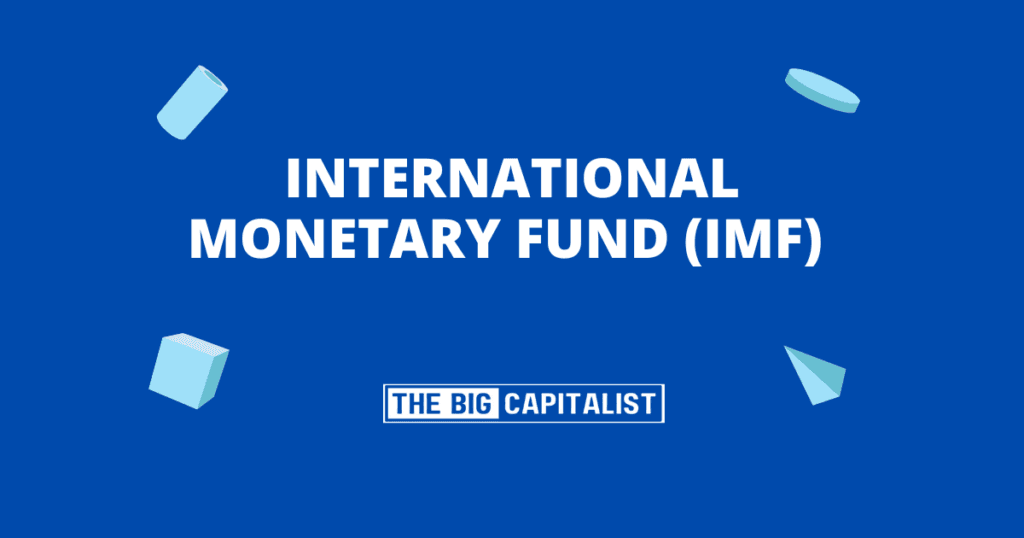The International Monetary Fund (IMF) is a key player in global economics. With 190 member countries, it has a significant impact on the world’s financial landscape. The International Monetary Fund (IMF) plays a crucial role in this regard.
Established in 1944, the IMF’s primary role is to ensure the stability of the international monetary system. It provides loans, technical assistance, and training to member countries, particularly those facing balance of payments problems.
The IMF also conducts regular surveillance of the global economy. This helps it to identify potential risks and provide timely policy advice.
In this article, we will explore the role of the IMF. We will look at its impact on development and society. We will also discuss how the organization works.
The IMF’s Origins and Purpose
The International Monetary Fund was born out of necessity. Established in 1944 during the Bretton Woods Conference, it was designed to foster economic cooperation globally.
Its primary aim is to ensure monetary stability. This involves overseeing the international monetary system to prevent crises that could disrupt global trade. Undoubtedly, the International Monetary Fund (IMF) has a central role here.
The IMF promotes exchange rate stability. By doing so, it encourages international trade, fostering high employment and sustainable growth.
Members contribute financial resources to the IMF. These contributions are used for lending, ensuring the organization can provide support when needed.
How the IMF Supports Global Stability
The IMF is crucial in maintaining global stability. It conducts economic surveillance, monitoring economies and offering policy advice.
When countries face financial crises, the IMF provides loans. These loans help stabilize economies and restore confidence.
The IMF also offers technical assistance. By training officials, it helps improve economic management in member countries.
Key roles of the IMF include:
- Facilitating international trade and investment
- Promoting monetary cooperation among countries
- Supporting high employment and income growth
IMF’s Role in Economic Development and Society
The IMF plays a vital role in global economic development. It supports countries in reducing poverty and fostering growth.
Through its lending programs, the IMF addresses balance of payments issues. This support helps countries stabilize and grow their economies. The International Monetary Fund (IMF) is instrumental in these efforts.
The organization emphasizes good governance and policy reforms. These measures are crucial for sustainable development and social progress.
By collaborating with other international bodies, the IMF tackles challenges like inequality and climate change. This cooperation enhances the positive impact on societies globally.
Governance and Funding of the IMF
The governance of the IMF involves a dual structure. It comprises a Board of Governors and an Executive Board. This ensures effective decision-making and policy direction.
Member countries’ quotas fund the IMF’s operations. These quotas reflect their size in the global economy. They determine financial contributions and voting power.
The IMF’s legal framework is established by its Articles of Agreement. This framework guides the organization’s activities and governance processes.
Criticisms and Evolution of the IMF
The IMF has faced criticism for the conditions tied to its loans. These conditions often demand austerity measures, which can be controversial. Critics argue they might harm local economies.
However, the IMF has responded to global challenges. It now considers issues like climate change and inequality. This evolution reflects its willingness to adapt.
The organization is also focusing on governance and corruption. This focus is crucial for improving its effectiveness. By doing so, the IMF aims to enhance global economic resilience.
The IMF’s Impact on Policy and Reform
The IMF significantly influences economic policies worldwide. It provides member countries with vital policy advice. This advice is based on thorough economic analysis.
Reforms are often attached to IMF lending programs. These reforms aim to improve economic stability and growth. Countries must adopt these measures to access funds. The International Monetary Fund (IMF) thus plays a pivotal role in such policy implementations.
Through its initiatives, the IMF fosters long-term economic health. It helps implement policies that prevent crises. This role is vital for global prosperity and stability.
Conclusion
The IMF will continue to play a crucial role in global economics. As the world changes, so does the IMF’s approach. It adapts to meet new challenges like climate change and digital currencies.
Ongoing reforms within the organization aim to enhance its effectiveness. These changes are designed to address modern economic concerns and ensure equitable growth. The focus is on sustainable policies that promote stability.
Critics push for more inclusive decision-making. They advocate for greater transparency and accountability. The IMF remains committed to addressing these concerns.
Ultimately, the IMF strives to create a stable foundation for global prosperity. By evolving with the times, it aims to meet future economic challenges head-on.
FAQ: Understanding the IMF
1. What is the main role of the International Monetary Fund (IMF)?
The IMF’s main role is to promote global financial stability by offering loans, policy advice, and technical assistance to member countries facing economic challenges, especially balance of payments issues.
2. How does the IMF help countries in crisis?
The IMF provides emergency loans, conducts economic surveillance, and supports policy reforms to help countries stabilize their economies and return to growth.
















